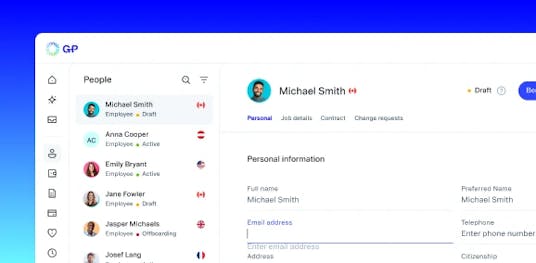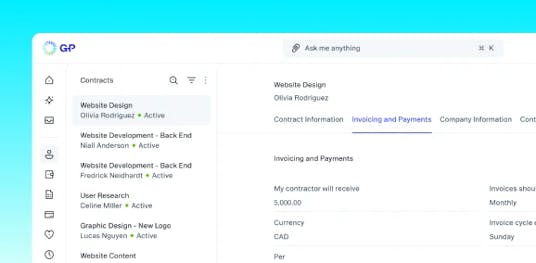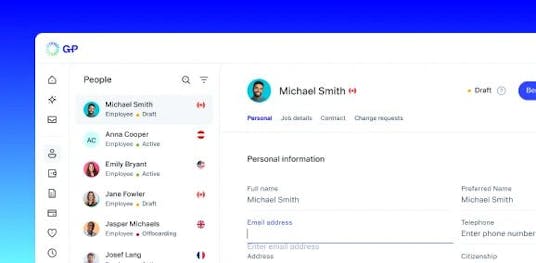As a member of the European Union (EU) experiencing economic growth and stability, Croatia is a great place for both companies and employees. If you’re considering expanding to Croatia, you need to know how to get a Croatia work visa for every employee. Without these visas in place, you could face fines or delays due to noncompliant employees.
Types of work visas in Croatia
Employees planning to work in Croatia will need a work permit and a residency permit. Since Croatia is part of the EU, most European citizens can live and work in the country without a visa. If employees are from outside of the EU, they’ll need to obtain a work permit through their local Republic of Croatia diplomatic mission.
Most Croatia work and residence permits are limited to 12 months. However, Croatia allows applicants to extend their work permit at least 30 days before it expires if they need to continue to work in the country. Croatia has adopted the EU Blue card directives, which is a type of work and residence permit applicable to highly-qualified third-country nationals. The EU Blue card has a longer validity period of 2 years.
While the work and residence permit combination is the most common way for employees to obtain a work visa in Croatia, some may be eligible for a work registration certificate. These certificates are typically for consultants, performers, journalists, and members of a religious order. The work registration certificate is issued by the Ministry of Interior to perform contracted work for up to 30 or 90 days in a calendar year.
Requirements to obtain Croatia work visas
Previously, Croatia used a quota system for work and residence permits, which meant applicants could only get a work permit if the country was below its quota. The quota system was abolished as of January 1, 2021.
Under a new Act, which regulates the entry, stay, and work of third-country nationals in Croatia, employers must first contact the country’s employment service (HZZ) for a labor market assessment to determine if there are any unemployed Croatian nationals suitable for the position. If the study does not find any qualified individuals, the employer can then proceed with applying for a work and residence permit for a non-EU national.
All applicants need certain documents, including:
- A copy of their passport
- A passport-size photo
- Proof of their ability to support themselves while in Croatia
- Evidence of health insurance
- An employment contract
- Proof of academic qualifications and skills
- Evidence of their company’s registration
Employees looking to get an EU Blue Card must be from a country outside the EU and have completed a bachelor’s degree. Applicants also need a binding job offer or an active work contract. Member states will often fast-track the Blue Card application process, making it faster than the traditional work and resident permit process.
Application process
The Croatia work visa application process depends on the specific visa type and the local embassy’s procedures. For example, some embassies don’t require appointments but instead operate on a first-come, first-serve basis.
To start the process, an applicant needs to go to the administrative police station closest to their Croatia residence or the embassy/consulate in their home country. Next, they must submit all the documents listed above as well as an application.
Once the work and residence permit gets approved, the individual must pay EUR 75 for issuing the permit along with a separate biometric residence permit and administration fees. Croatia will order the residence permit once all the fees are paid, and the employee can pick it up at the police station after 21 days.
Other important considerations
EU Blue card holders can take their family members, such as a spouse, children, and other dependents, with them to Croatia. However, those with a regular work and residence visa will need to apply for family members to come to Croatia. This process should take place at the local consulate and include a copy of a valid travel document, proof of relationship, proof of sufficient finances, and evidence of adequate health insurance.
When employing a third-country national, the employer must also take into account the necessity to uphold a minimum percentage of Croatian, EU, and Swiss nationals to international employees, ensuring that it does not fall below 25%.
Discover how G-P can help you manage your global teams.
At G-P, we’re committed to breaking down barriers to global business, enabling opportunity for everyone, everywhere, and helping companies tap into the fullest potential of their workforce. We help you maintain full compliance with local laws and ensure everything from hiring and onboarding to paying your team is quick and easy, regardless of where they are in the world.
Find out more about how our Global Growth Platform™ can help you grow your team across the globe.
–
At this moment, G-P does not offer support processing work visas or permits in this particular location.




















